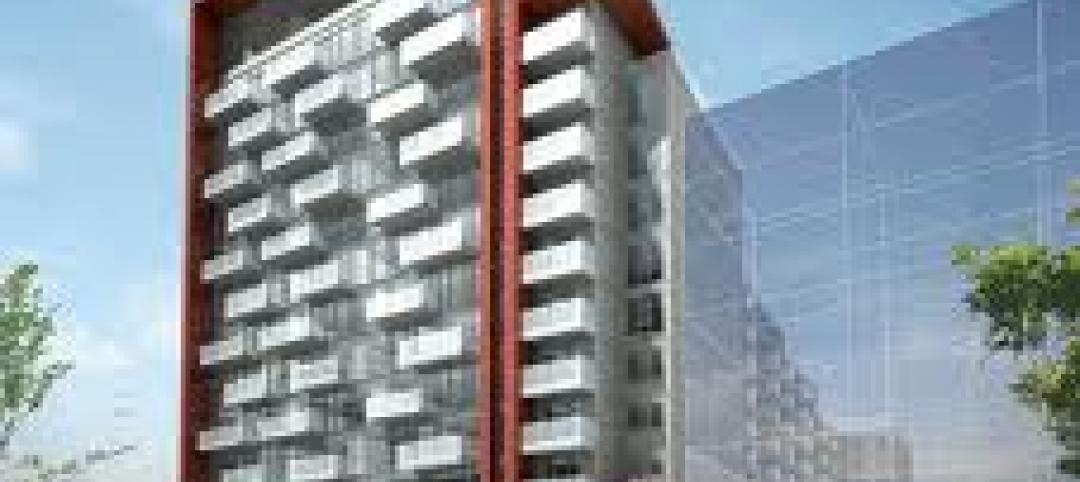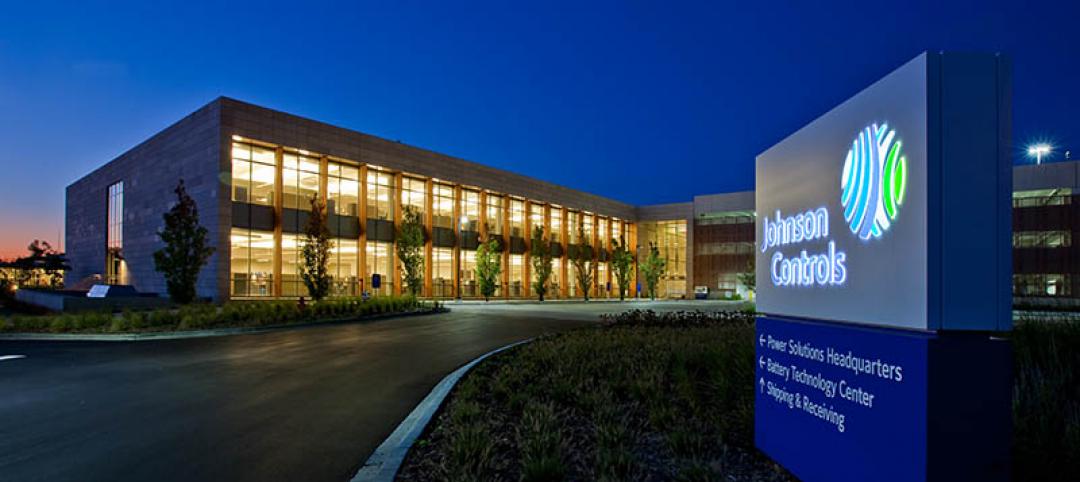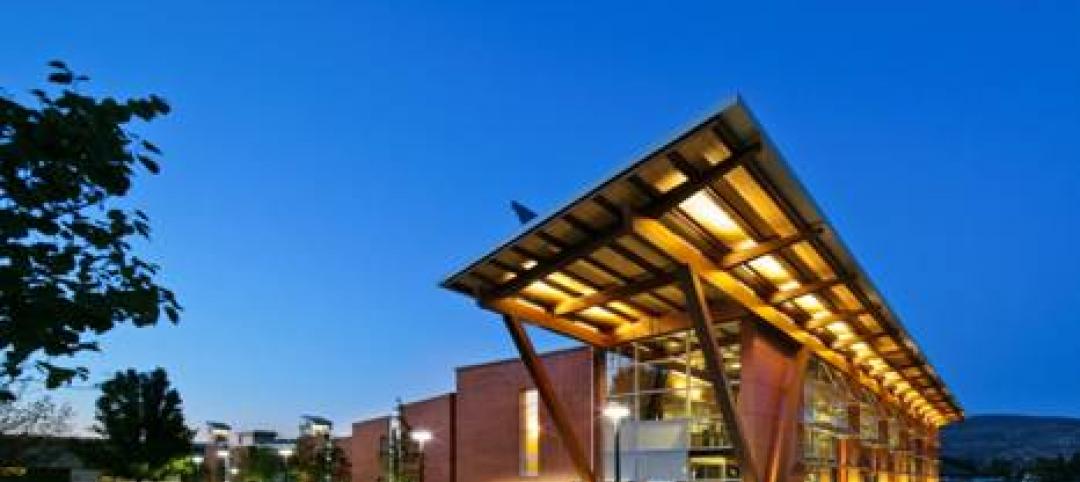The U.S. General Services Administration (GSA), and the U.S. Department of Energy (DOE) will invest $30 million from the Inflation Reduction Act to increase the sustainability of federal buildings by testing novel technologies.
The vehicle for that effort, the Green Proving Ground (GPG) program, will invest in American-made technologies to help increase federal electric vehicle supply equipment, protect air quality, reduce climate pollution, and enhance building performance. This year the GPG program has selected 20 emerging and sustainable technologies for real-world evaluation in GSA’s real-estate portfolio.
The number of technologies tested this year increased four-fold increase over previous years with added funding from the Inflation Reduction Act.
This year’s GPG program focuses on seven technology areas:
- Electric Vehicle Supply Equipment: Turnkey electric vehicle charging infrastructure from Loop Global, optimized charging through charge management software from bp pulse, a battery-buffered DC fast charger from ADS-TEC Energy, and vehicle grid integration (VGI) technology from General Motors LLC.
- Germicidal Ultraviolet technologies: Next-generation LEDs and Far-UVC light to disinfect air without increasing ventilation. The GPG program will evaluate technologies that support healthier buildings while reducing energy use from Far UV Technologies, R-Zero, and PURO (subsidiary of Applied UV Inc.) with the Academy Energy Group.
- Greenhouse Gas Accounting: Technologies essential to achieving 24/7 carbon-free electricity and net zero operational emissions. Cambio AI and nZero will aim to go beyond annual greenhouse gas reporting to operationally focused carbon management, including near-real-time 24/7 carbon-free electricity insights and impacts.
- Grid-Interactive Efficient Buildings: Delivering cost savings by leveraging technologies and strategies that provide continuous demand management and load flexibility. The energy management platform from COI Energy aims to optimize energy use through machine learning.
- High-Performance technologies: Helping reduce operational and embodied carbon emissions by evaluating automated aerosol-based duct sealing from Aeroseal; an Internet-of-Things (IoT) lighting system from Signify North America Corporation; and bio-engineered, low-embodied-carbon concrete from Biomason. DOE will seek commercial partners to validate Toggled, a plug load control solution, and a thermostatic radiator cover and hybrid electrification solution from Kelvin.
- Onsite Renewables: Technology essential to meeting the Administration’s net zero operational emission goals. The GPG program will evaluate an energy storage technology from Yotta Energy that is the size of a large laptop and installed in place of ballast beneath a rooftop photovoltaic system. The program will also pilot a wind turbine from Accelerate Wind that can be installed at the edge of the building roof and complement rooftop solar.
- Window Retrofit technologies: Help improve the performance of a building’s exterior envelope by evaluating three technologies: vacuum-insulated glazing from Pilkington; R14 interior window retrofit system from Vitro Architectural Glass; and, a secondary window framing system from Indow.
Some of these technologies will be tested at GSA’s Applied Innovation Learning Labs to identify replicable combinations of technologies that deliver net-zero operational emissions.
Related Stories
| Oct 6, 2011
GREENBUILD 2011: NEXT Living EcoSuite showcased
Tridel teams up with Cisco and Control4 to unveil the future of green condo living in Canada.
| Oct 5, 2011
GREENBUILD 2011: Johnson Controls announces Panoptix, a new approach to building efficiency
Panoptix combines latest technology, new business model and industry-leading expertise to make building efficiency easier and more accessible to a broader market.
| Oct 5, 2011
GREENBUILD 2011: Sustainable construction should stress durability as well as energy efficiency
There is now a call for making enhanced resilience of a building’s structure to natural and man-made disasters the first consideration of a green building.
| Oct 5, 2011
GREENBUILD 2011: Solar PV canopy system expanded for architectural market
Turnkey systems create an aesthetic architectural power plant.
| Oct 5, 2011
GREENBUILD 2011: Brick offers growing options for sustainable building design
Brick exteriors, interiors and landscaping options can increase sustainability that also helps earn LEED certification.
| Oct 4, 2011
GREENBUILD 2011: Two new recycled glass products announced
The two collections offer both larger and smaller particulates.
| Oct 4, 2011
GREENBUILD 2011: Wall protection line now eligible to contribute to LEED Pilot Credit 43
The Cradle-to-Cradle Certified Wall Protection Line offers an additional option for customers to achieve LEED project certification.
| Sep 23, 2011
Okanagan College sets sights on Living Buildings Challenge
The Living Building Challenge requires projects to meet a stringent list of qualifications, including net-zero energy and water consumption, and address critical environmental, social and economic factors.
| Sep 19, 2011
Portland team hired as LEED and commissioning consultants for $5.5B downtown sustainable project in Qatar
The $5.5 billion sustainable downtown regeneration project underway by Msheireb Properties will transform a 76 acres site at the centre of Doha, Qatar’s capital city, recreating a way of living that is rooted in Qatari culture, attracting residents back to the city center and reversing the trend for decentralization.
| Sep 14, 2011
USGBC L.A. Chapter's Green Gala features Jason McLennan as keynote speaker
The Los Angeles Chapter of the nonprofit USGBC will launch its Sustainable Innovation Awards this year during the chapter's 7th Annual Green Gala on Thursday, November 3.

















